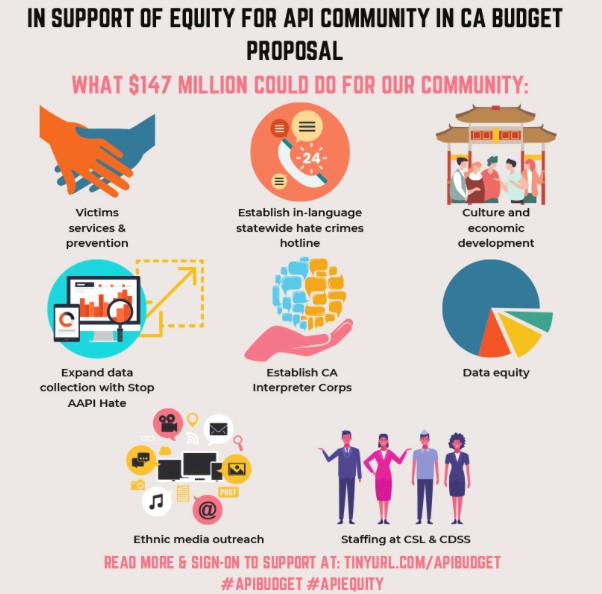Slide Presentation:  A Budget of Opportunity
A Budget of Opportunity
California is in its strongest state and federal funding situation in budget history. Because of a boost in state tax revenue and $26 billion from the American Rescue Plan, the Assembly is revising its 2021 Budget Blueprint, originally unveiled in December. The surplus and federal funding boost will provide additional investment opportunities to ensure, and even accelerate, an economic recovery that is inclusive of all Californians.
Assemblymember Phil Ting (D-San Francisco), Chair of the Assembly Budget Committee, unveiled his 2021-22 Revised Budget Blueprint, Preserve | Respond | Protect | Recover, calling for the restoration of state services and greater investment in priority areas, while also developing ways to stimulate the economy.
With early budget action, the state has already followed through on promises made in key areas, such as school reopening, stimulus aid to individuals and small businesses, wildfire protection and eviction prevention. California is in a position to do much more - poised to not only reverse budget cuts made last year, but also expand critical health and human services programs in support of those still struggling.
“While the COVID-19 numbers and economic indicators are encouraging, many Californians still need their government to assist them during this recovery. The White House has stepped up, giving states the ability to keep helping families and small businesses and ensure economic recovery touches all communities. New federal funding also presents us a rare opportunity to take meaningful steps toward equity,” said Ting.
Highlights of the revised Preserve | Respond | Protect | Recover plan include:
Stabilization and expansion of some critical programs and services: Repay school/community college deferrals; restore cuts to UC, CSU, courts, housing, child support, health and human services; bolster access to Medi-Cal and Covered California; retain healthy reserves
Maintain COVID-19 response: Continue investing in public health infrastructure; safely reopen schools for the fall; protect vulnerable populations in nursing homes and prisons; ensure workplace safety enforcement; greater transparency & oversight of all disaster-related funding
Support for working families: Ongoing funding to head off homelessness; more Golden State Stimulus payments; implementation of TK-For-All and expansion of Early Care & Education (ECE); increase college financial aid and refund amounts for California Earned Income Tax Credit (CalEITC) filers; safeguard communities from wildfires
Reopening/economic ecovery: Add retraining programs for laid off workers; debt-free college; establish a Climate Crisis investment plan and infrastructure strategy to stimulate green jobs while benefiting low-income communities; empower communities & celebrating diversity to combat racism; modernization of the Employment Development Department (EDD)
# # # # #

 The release of gun violence data is later than usual this year because the California Attorney General’s (AG) Office began withholding firearms records. This also made it difficult for researchers to continue studying the effectiveness of the state’s gun policies. But the newly sworn-in Attorney General Rob Bonta made the vital information available as soon as he took office. However, to ensure state data regarding firearms remain accessible for years, Ting will continue to pursue AB 1237 this session - his bill reiterating the duty of the AG’s Office to release these materials to California research centers.
The release of gun violence data is later than usual this year because the California Attorney General’s (AG) Office began withholding firearms records. This also made it difficult for researchers to continue studying the effectiveness of the state’s gun policies. But the newly sworn-in Attorney General Rob Bonta made the vital information available as soon as he took office. However, to ensure state data regarding firearms remain accessible for years, Ting will continue to pursue AB 1237 this session - his bill reiterating the duty of the AG’s Office to release these materials to California research centers.